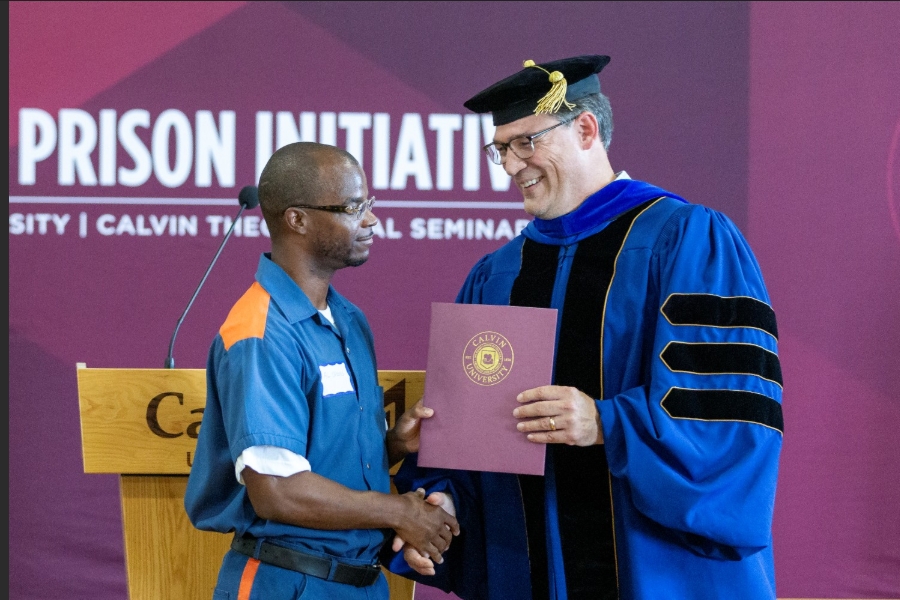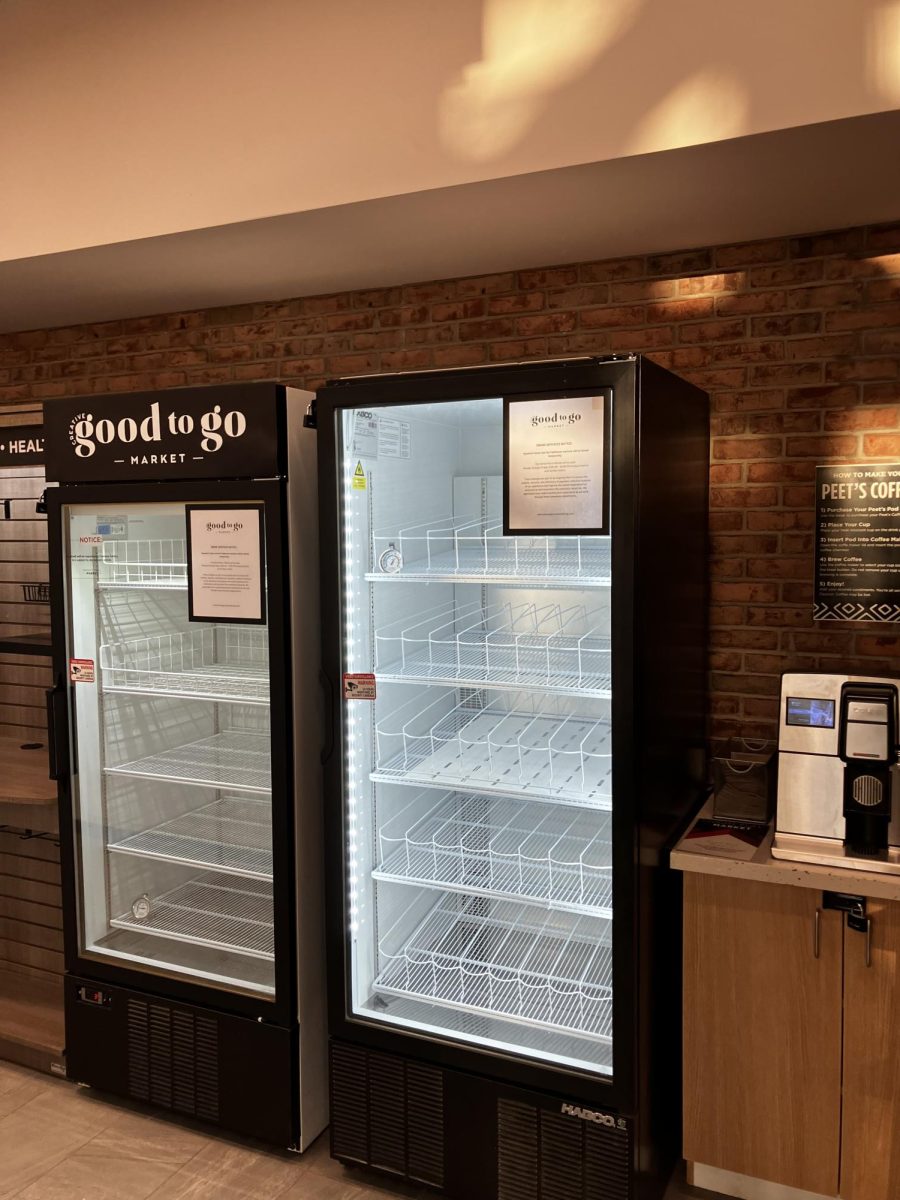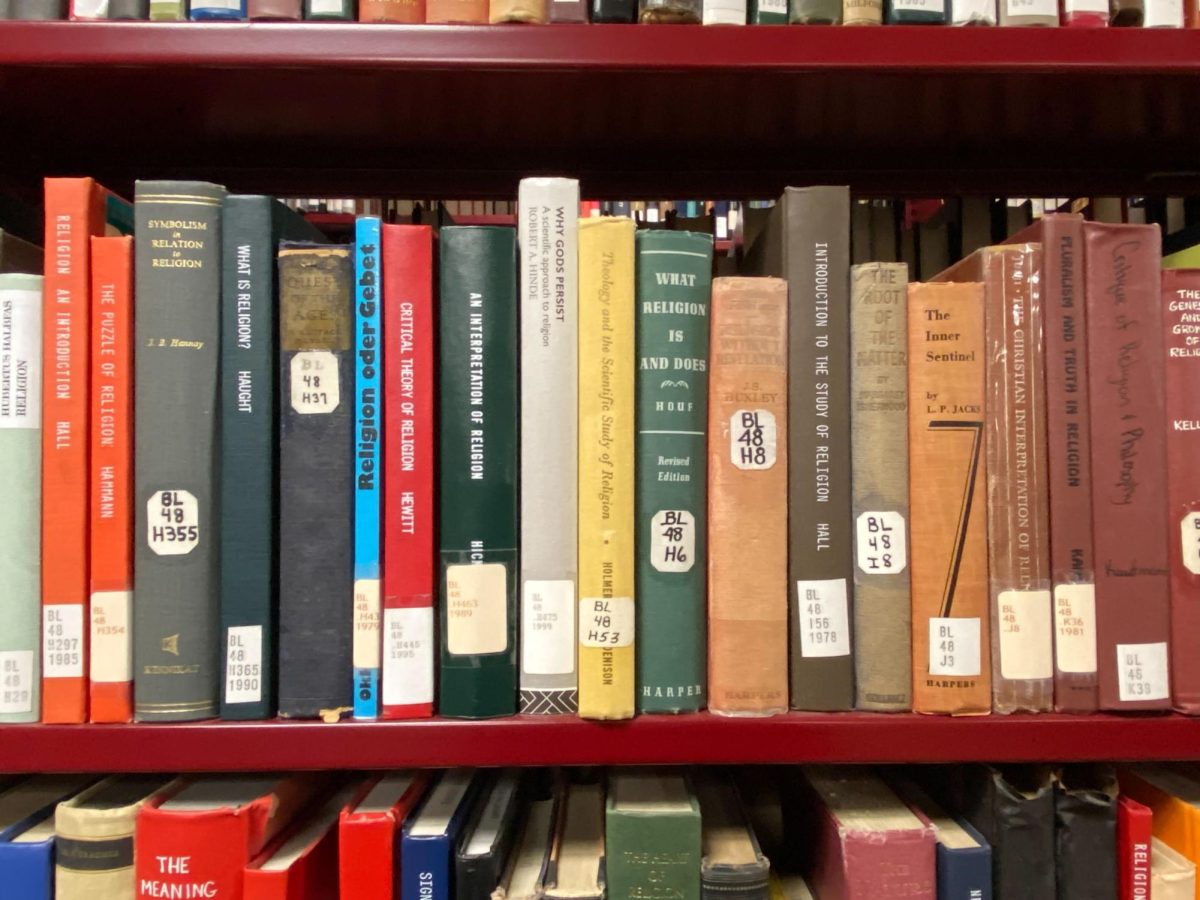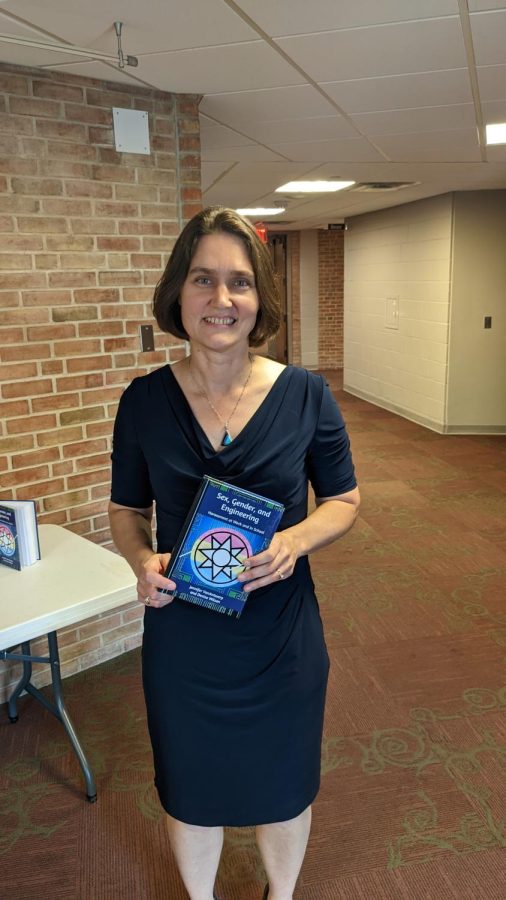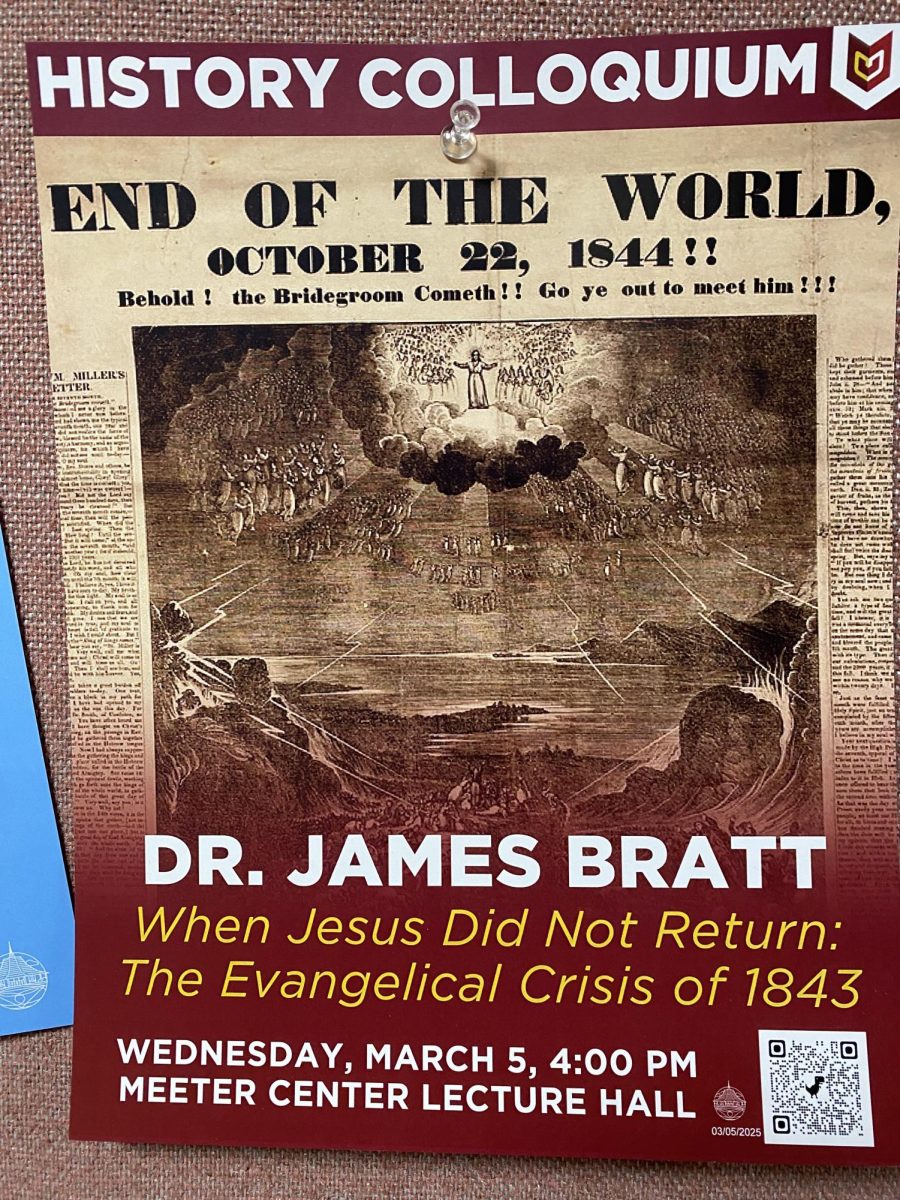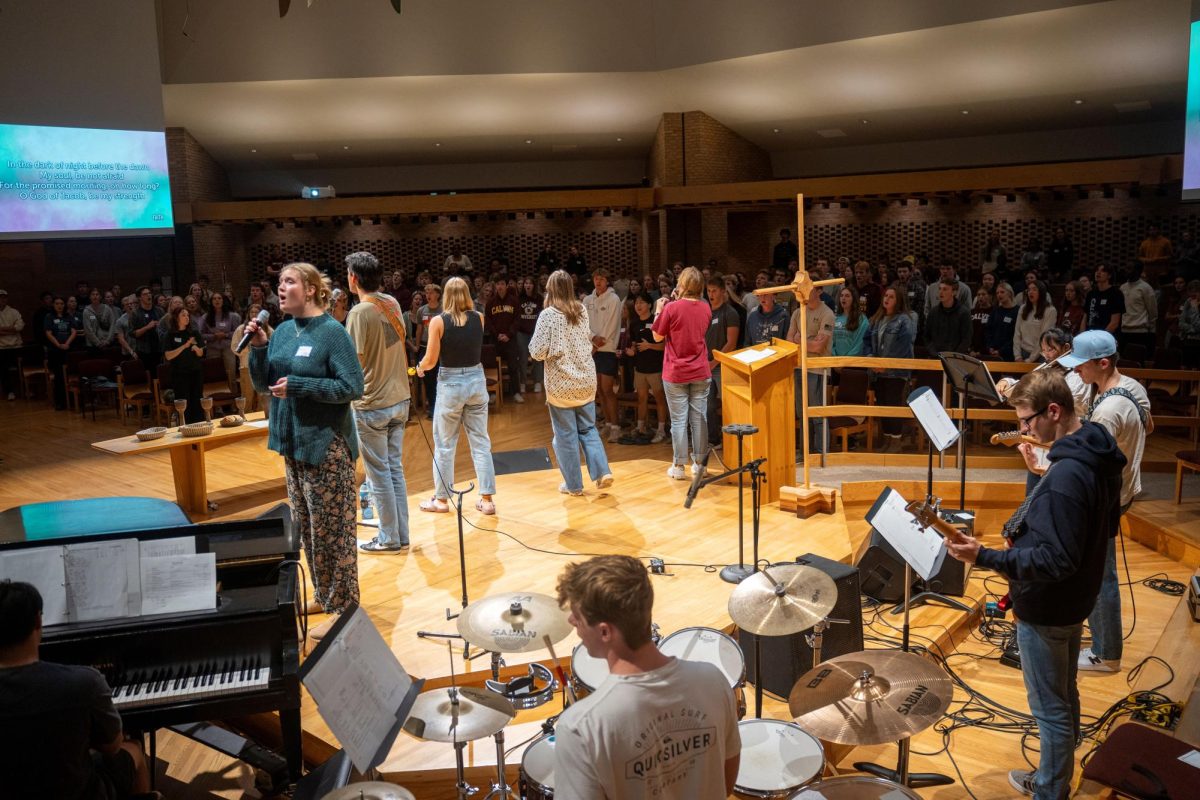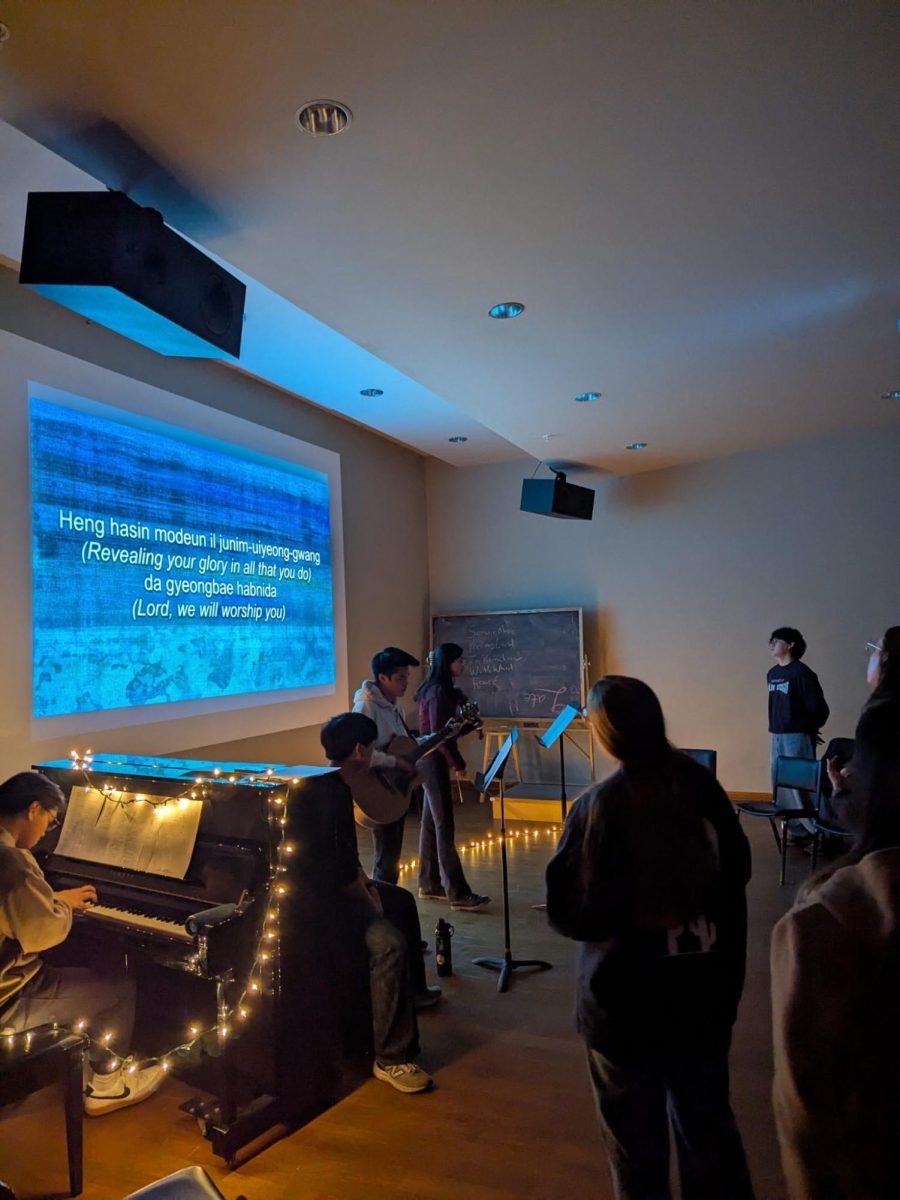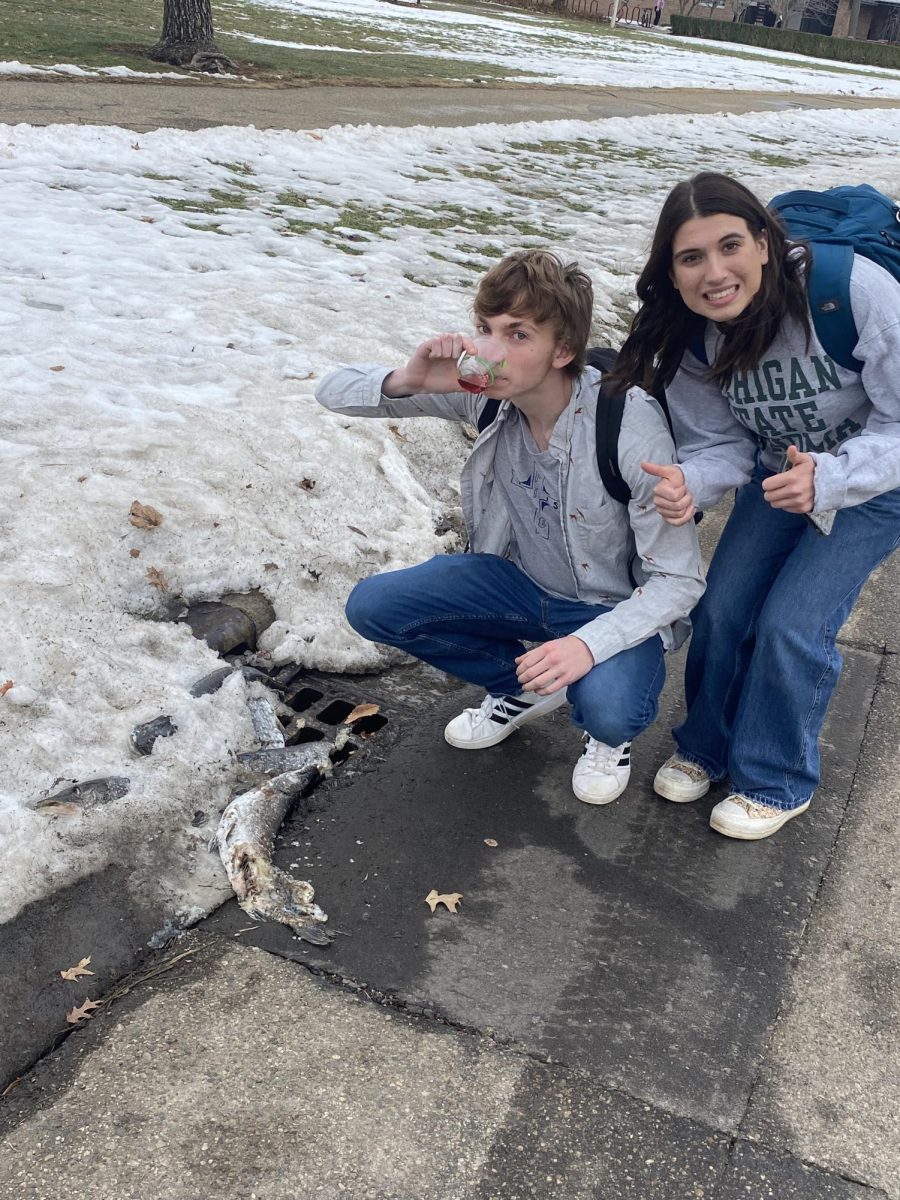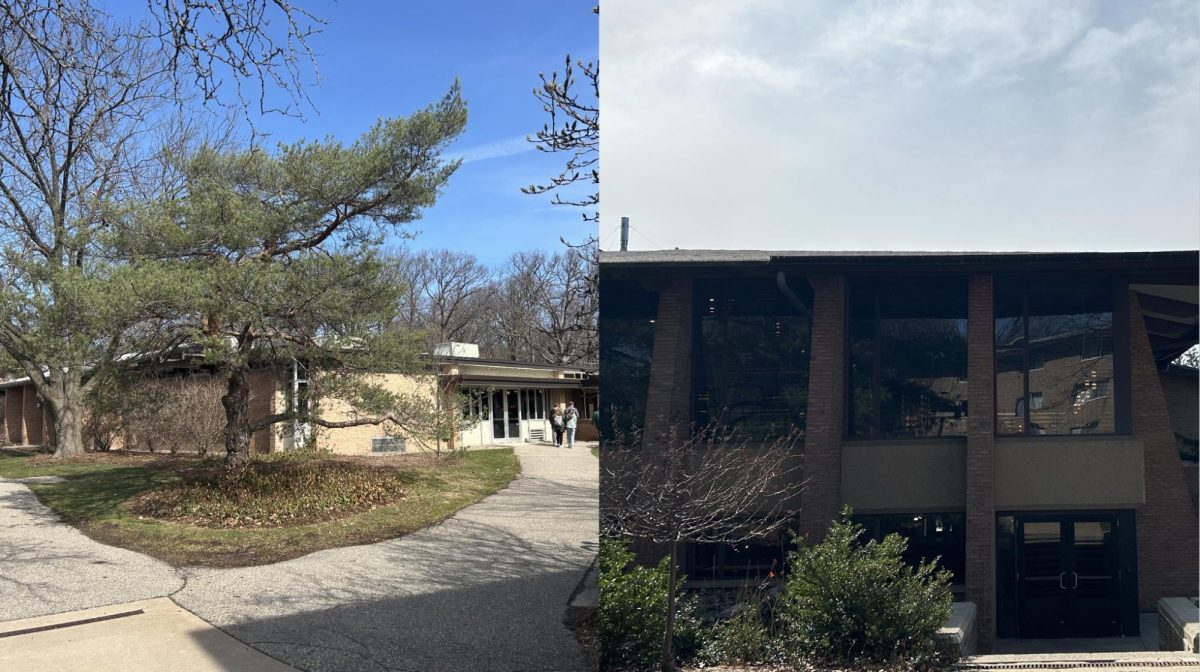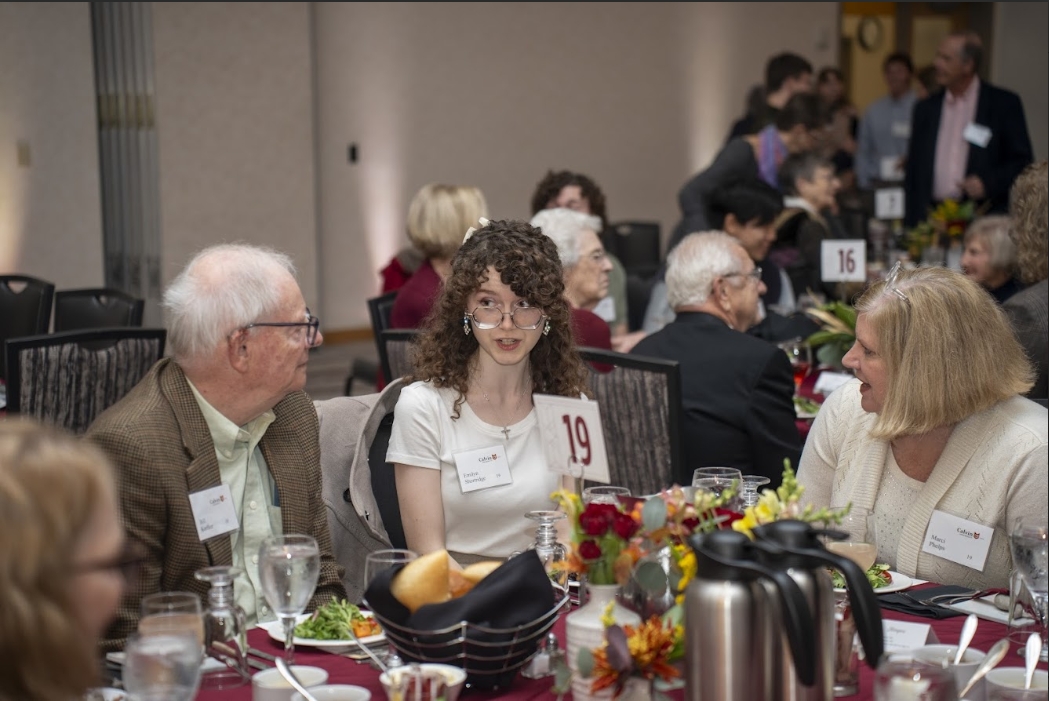Last week, Calvin’s board of trustees (BOT) made public its report to Synod 2025 – a document detailing Calvin’s plan to deal with faculty dissent on certain key topics, including human sexuality.
The report comes after a series of debates and decisions at Calvin and in the Christian Reformed Church in North America (CRCNA), Calvin’s parent denomination, regarding the CRCNA’s position on sexuality, and on those in the denomination and the university who disagree. In 2022, synod, the CRCNA’s governing body, affirmed that the denomination’s position against same-sex sexual relationships had confessional status. This meant that all church officebearers – pastors, elders, and deacons – as well as Calvin faculty are expected to agree with it. At Synod 2024, the CRCNA tightened its processes for officebearers with confessional difficulties and ordered Calvin to “review and revise” its processes for faculty with confessional difficulties.
The recent report details Calvin’s revised plan for approaching this topic, which includes the introduction of mentoring processes and of time constraints on disagreement. Provost Noah Toly described the report as a way to bring “clarity to the relationship with the church, the fact that its interpretations and standards are ours.”
“It’s not his, hers, or mine, it’s ours, right? We as a university share with the denomination not only its standards, three ecumenical creeds and three forms of unity, but the denomination’s interpretations of those,” Toly said, adding that the decisions were going to be a “long-term positive for morale. In the short-term, we have to walk with people in their disappointment sometimes and give them opportunities to share that genuinely and earnestly.”
According to University Pastor Mary Hulst, the new model lends a more formal structure to the process of expressing difficulties with confessional issues. Hulst said that “we already have this developmental system of a three-year Kuyper Seminar,” which all new faculty members are required to take as part of their onboarding process to familiarize themselves with CRC doctrine.
While in the past new faculty members could file gravamina at any point during the Kuyper seminar, the new policy outlines a specific timeline for expressing difficulty with confessional doctrines. According to Hulst, faculty members who struggle with a point of doctrine now make that known at the end of the Kuyper seminar, and enter “an intentional period of mentorship,” where they can wrestle with the issue. If, at the end of the mentorship period, they still feel they cannot subscribe to that doctrine, they can file for a confessional exception with the Professional Status Committee.
Toly noted that the three-year mentoring process was added to allow faculty to wrestle with the confessions. “The case for even exceptions here at Calvin has been often made by emphasizing the point that people need to be free to wrestle with things. They might not disagree with something, or they might not know if they agree with it yet, or they might have to really truly earnestly wrestle,” he said.
The report elicited a range of responses from faculty.
Loren Haarsma, professor of physics, said that he doesn’t think much will change as a result of the report. “In the short term, it shouldn’t affect existing faculty with gravamen in place, and it does change the procedure for new incoming faculty but in ways that are reasonable,” he said.
On the other hand, Frans van Liere, professor of history, said that he thinks the report, which requires annual statements of alignment, “will affect everybody.” van Liere was especially concerned about a lack of clarity in the report’s statement that faculty must align their “advocacy” with the Synod’s interpretation of the confessions. “I think that’s one of the gray zones where a lot of interpretation is possible,” van Liere said.
He also noted that the process for three-year faculty mentoring, which faculty who express disagreements will be required to participate in, was vague, as well as the requirement that confessional exceptions be “rare.” “What is rare? … I appreciate that exceptions are granted, but I think it needs a little bit more definition of what exactly an exception constitutes in that case,” said van Liere.
James Smith, professor of philosophy, shared some of van Liere’s concerns about points of unclarity in the document, especially in what is meant by alignment in “personal and professional conduct.”
“It includes ‘teaching, scholarship, advocacy, and public pronouncements, as well as advising, guiding, and mentoring students,’… but is ‘not limited to’ these things. That is a massive, anxiety-inducing ambiguity for a lot of faculty,” said Smith.
Smith said that report “represents a significant shift in the ethos of university, and that he thinks “some faculty also feel a sense of betrayal” after the proposed changes.
“Last summer and fall, the administration spoke a lot about preserving the integrity of the university and the significance of academic freedom. But what the taskforce submitted, and the BOT adopted, is focused on policing thought… and enforcing compliance,” said Smith. “At the faculty senate, the mix of anger and anxiety among the faculty was palpable. A lot of us feel like we don’t recognize this place anymore.”
Van Liere was concerned with how Synod’s decision treats the confessions. “The confessions are not meant to be rules… they’re aspirational,” he said. “You can’t police thought and belief, because belief, faith, is a matter of personal engagement. There is struggle, there is doubt… It’s not boxes that you check.”
The conversation surrounding confessions and faculty disagreement became much more prevalent after the denomination took a harder stance on same-sex relationships. van Liere said that he thinks “the CRC made a bad choice in making this a confessional issue. That opened a whole can of worms that have nothing to do with conduct. It has to do with beliefs and confessions. Are you going to have a thought police here at Calvin?”
Even with all these concerns, van Liere expressed hope that the open discussion of these difficult issues would still continue. “I can see that this attempt by the board is kind of to try to make the best out of a bad situation, and I appreciate the effort that they put in it,” he said. “And my hope is that it will not change the status quo as we have seen it in the past years all that dramatically.”
Kate van Liere, professor of history, agreed, saying that she thinks “the CCAF (Confessional Commitment and Academic Freedom) committee worked very hard and quite creatively to produce a policy that would satisfy both the denomination and the Calvin faculty. It’s not surprising that the results don’t fully satisfy anyone.”
Haarsma was also hopeful for continued discussion, citing several parts of the report that confirmed Calvin’s commitment to fairly representing a variety of opinions. “Faculty members feel called by God to do work, teaching and scholarship, which involves exploration and consideration of hard topics,” Haarsma said. “We don’t know if the Senate or the Board of Trustees or the Professional Status Committee will change… But these things, these statements in here, if they really represent the vision of the administration and the board, should support what professors feel called to do.”
Smith was less optimistic. “We at Calvin used to distinguish ourselves in the world of Christian higher education by emphasizing our culture of exploration and boundary-pushing. We used to be the avant-garde think tank for the church to ask the hard questions…Now the BOT has cowed to the denomination and said, in so many words, ‘We think whatever you tell us to think.’ It’s embarrassing.”




